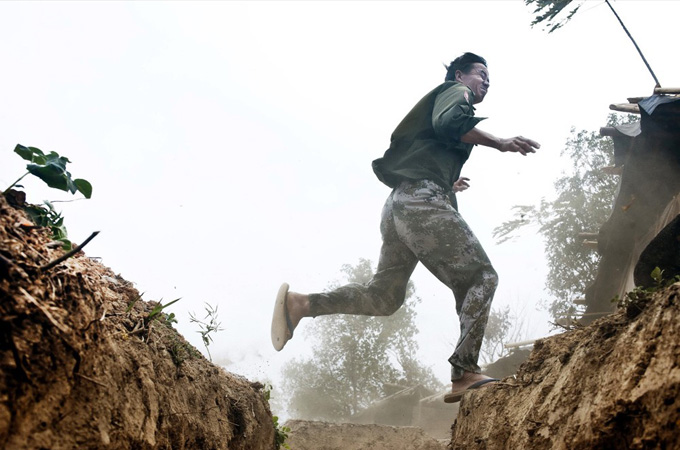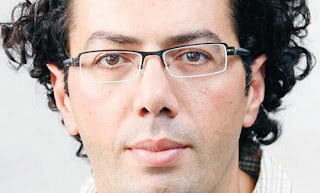
A coalition of 58 civil society groups - led by Refugees International, the Arakan Project, and the Equal Rights Trust - condemns the wave of abuse launched by state authorities in Myanmar against the Rohingya community, following a disturbing period of inter-communal violence. It also charges Bangladesh with flouting international law in its attempts to prevent fleeing Rohingya from reaching safety. The coalition has issued a series of recommendations for both Myanmar and Bangladesh, which were delivered today to the two governments and their embassies in 28 countries. The coalition's full statement is as follows:
Civil Society Organisations Deeply Concerned by Ongoing Violence Against Stateless Rohingya in Myanmar and Their Refoulement From Bangladesh
The stateless Rohingya of Myanmar have suffered from extreme persecution and discrimination for decades. They are now facing another crisis. On 3 June inter-communal violence erupted, and this has evolved into large-scale state sponsored violence against the Rohingya. Despite this, neighbouring Bangladesh is not allowing them to enter to seek refuge. The Rohingya population needs urgent measures to be taken for their protection.
In Myanmar, what began as inter-communal violence has evolved into large-scale state sponsored violence against the Rohingya. The violence began on 3 June 2012 and has mainly occurred in Sittwe and Maungdaw. On 10 June, a state of military emergency was declared, after which the military became more actively involved in committing acts of violence and other human rights abuses against the Rohingya including killings and mass scale arrests of Rohingya men and boys in North Rakhine State. Many Rohingya continue to be victims of violence and cannot leave their homes for fear of persecution, and are thus deprived of their livelihood and most basic needs. The urgent humanitarian needs of those displaced (IDPs) - including those not in IDP camps - are not being adequately met and there is concern that those displaced will not be allowed to return to their homes as soon as it is safe to do so, thus creating a situation of protracted displacement.
Bangladesh, in contravention of its international legal obligations, closed its border and pushed back many Rohingya fleeing the violence and persecution in Myanmar. The refoulement of these refugees by Bangladesh to Myanmar where they face a very immediate threat to life and freedom, and a danger of irreparable harm; and the manner of refoulement, by push backs into dangerous waters, including in unsafe vessels are matters of serious concern.
The legal obligations of both Myanmar and Bangladesh require them to protect all persons within their territories or subject to their jurisdictions, regardless of whether they are citizens, stateless persons or refugees. In their treatment of the Rohingya, both countries have violated the right to life, the right to be free from torture or cruel, inhuman or degrading treatment or punishment, the right to liberty and freedom from arbitrary detention, the right to food and shelter including the fundamental right to be free from hunger and the right to the highest attainable standard of health. Bangladesh has also acted in violation of the rights to seek and to enjoy asylum and not to be subjected to refoulement.
We therefore recommend that both states immediately uphold their human rights obligations in this situation.
In particular, we recommend that the Government of Myanmar and the Rakhine State authorities take immediate steps to:
- Stop the violence.
- Stop the arbitrary arrests of Rohingya and abuses by security forces against them.
- Allow unhindered humanitarian access to assist all those in need as a result of the crisis, including internally-displaced people staying outside camps and those hosting them.
- Allow the displaced to return to their homes once it is safe and they feel safe to return, and ensure that a situation of protracted displacement is avoided.
- Allow an international inquiry into the abuses committed since June 2012 in Rakhine State.We recommend the Government of Bangladesh take immediate steps to:
- Open its borders to refugees and to stop refoulement of refugees.Further, we call on the international community to:
- Provide financial support for the humanitarian operation needed to assist people affected by the crisis in Rakhine State.
- Support the government of Bangladesh in providing protection to Rohingya refugees.
- Engage with the Governments of Myanmar and Bangladesh in relation to the above recommendations.
- We also recommend that the reform process in Myanmar address existing policies of discrimination against the Rohingya; and that this current crisis be used as an opportunity to address the longstanding problems between the communities in Rakhine State, and to promote a constructive dialogue aiming at peace and reconciliation.
The following groups endorsed the statement:
1. Act for Peace (Australia)
2. Actions Birmanie Belgium
3. Altsean-Burma
4. Asia Pacific Refugee Rights Network
5. Burma Campaign UK
6. Burmese Rohingya Association in Japan
7. Burmese Rohingya Community in Denmark
8. Burmese Rohingya Organisation UK
9. Catholic Tokyo International Center
10. Christian Coalition for Refugee and Migrant Workers, Japan
11. Christian Solidarity Worldwide
12. Church World Service - Immigration and Refugee Program
13. Civil Development Organization, Iraq
14. Dalit NGO Federation (DNF)
15. Equal Rights Trust
16. ESCR-Asia Pakistan
17. Euro-Burma Office
18. Fahamu Refugee Programme
19. Health Equity Initiatives, Kuala Lumpur
20. Human Rights and Genocide Clinic, Cardozo School of Law
21. Imparsial (Indonesia)
22. Info Birmanie
23. INFORM Documentation Centre, Sri Lanka
24. International Detention Coalition
25. International Observatory on Statelessness
26. Japan Association for Refugees
27. Japan Evangelical Lutheran Association
28. Jesuit Refugee Service
29. Jesuit Refugee Service Asia Pacific
30. Jesuit Social Center, Japan
31. Lawyers for Human Rights (South Africa)
32. Migrant Forum in Asia
33. Minority Rights Group International
34. Organization for Defending Victims of Violence
35. Partnership for Pastoralists Development Association(PAPDA)
36. People's Forum on Burma(Japan)
37. Philippine Alliance of Human Rights Advocates
38. Physicians for Human Rights
39. Praxis
40. Project Maje
41. Rafiq Japan
42. Rebirth Society
43. Refugee Council USA
44. Refugees International
45. RefugePoint
46. Restless Beings
47. Rohingya Society in Malaysia (RSM)
48. Society for Threatened Peoples / Germany
49. South East Asian Committee for Advocacy (SEACA)
50. Stateless Network
51. Sudan Peace Humanitarian Organisation
52. Swedish Burma Committee
53. Tenaganita
54. The Arakan Project
55. The May 18 Memorial Foundation
56. The Refuge Pnan
57. United to End Genocide
58. WOREC Nepal






